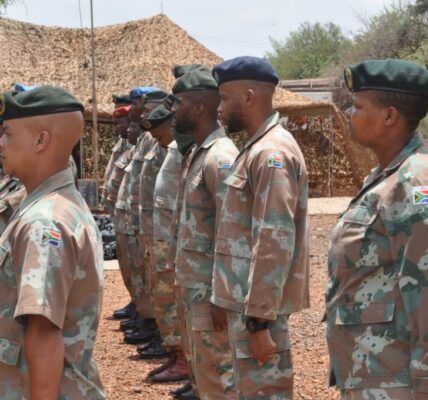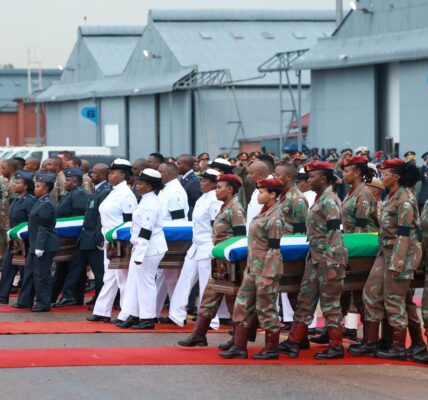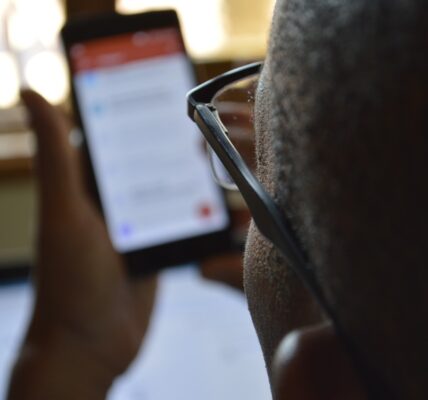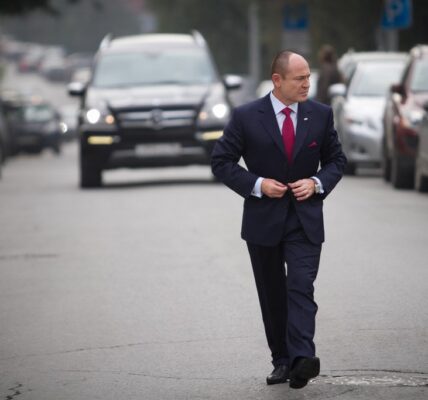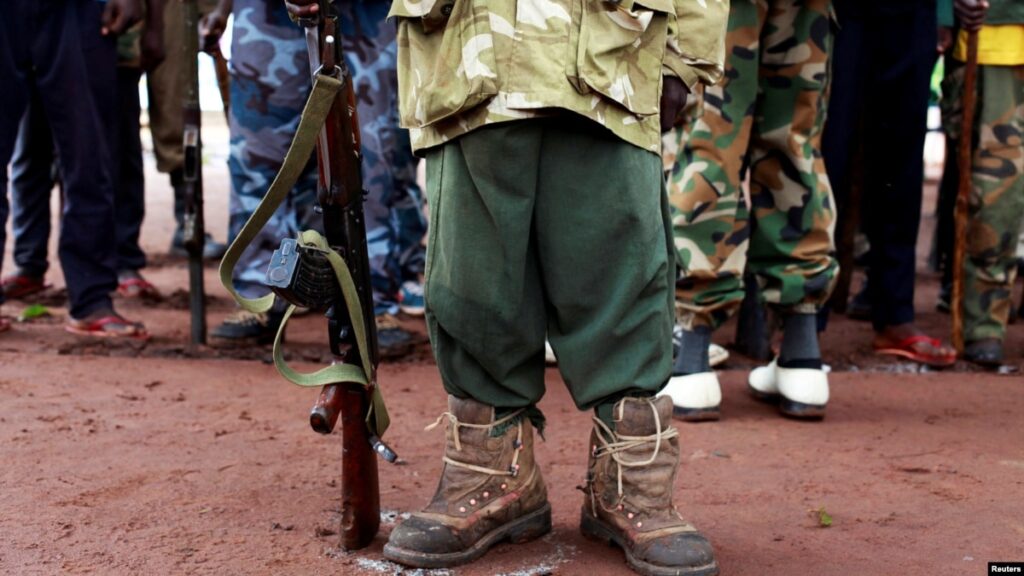
Africa has witnessed a significant surge in the recruitment of child soldiers across conflict zones, exacerbated by Islamic insurgencies advancing southward across the continent. The United Nations has highlighted a notably high increase in child recruitment, primarily by non-state armed groups, estimating that 8,655 children were recruited for conflicts in 2023. Disturbingly, children as young as five, were coerced into joining.
The countries that are most affected are:
– Burkina Faso: 169 boys were recruited mostly by terrorist groups.
– Central African Republic: 103 cases, including 23 instances of government and pro-government forces using children in support roles.
– Democratic Republic of Congo: 1,861 children, including 326 girls, were recruited and deployed by non-state armed groups. The UN lauded “the continued absence of verified cases of recruitment and use by the Armed Forces of the Democratic Republic of the Congo and the Congolese National Police.”
– Mali: 691 cases, including 79 instances of children used in support roles by Malian security forces. The UN expressed concern for the levels of recruitment of children and urged the military junta to criminalise their use.
– Nigeria: 680 children, including 431 girls, were abducted, recruited, and used by terrorist groups.
– Somalia: 658 children were recruited and used, including 559 by the al-Shabaab terrorist group, 23 by regional government forces, and 15 by government security forces.
– South Sudan: 152 cases, including 65 children recruited and used by the South Sudan People’s Defence Forces.
– Sudan: 209 cases, including 87 by the Rapid Support Forces. The UN reported 112 verified cases of children used in combat roles.
– Mozambique: 40 children were recruited and used by armed groups in the Cabo Delgado province in the northern parts of the country.
In an interview with National Security News, Naomi Haupt, a researcher from the University of the Free State in South Africa, highlighted how the recruitment of child soldiers is driven by factors such as armed conflicts, political instability, poverty, weak governance, and ethnic tensions. Armed groups exploit children’s vulnerability, sometimes forcing them into service, she said.
Children as young as five have been recruited and faced various forms of exploitation, including forced combat, sexual violence, and abuse. Particularly vulnerable are girls, who make up an estimated 40% of child soldiers. They often face unique challenges, including sexual slavery and forced marriage.
The reason why these children have been recruited or sometimes voluntarily joined armed groups is the extreme poverty that 40% of Sub-Saharan citizens live in.
Although there has been success in the reintegration of former child soldiers by movements like UNICEF, Haupt highlighted the difficulty of going back to their villages due to stigmatisation. Programmes that offer counselling and vocational training have shown success, but they lack the necessary funding.
Children in these areas are vulnerable, she says, and are targeted by armed groups.
THE RISE OF ISLAMIST INSURGENCIES CONTRIBUTES TO CHILD SOLDIER RECRUITMENT
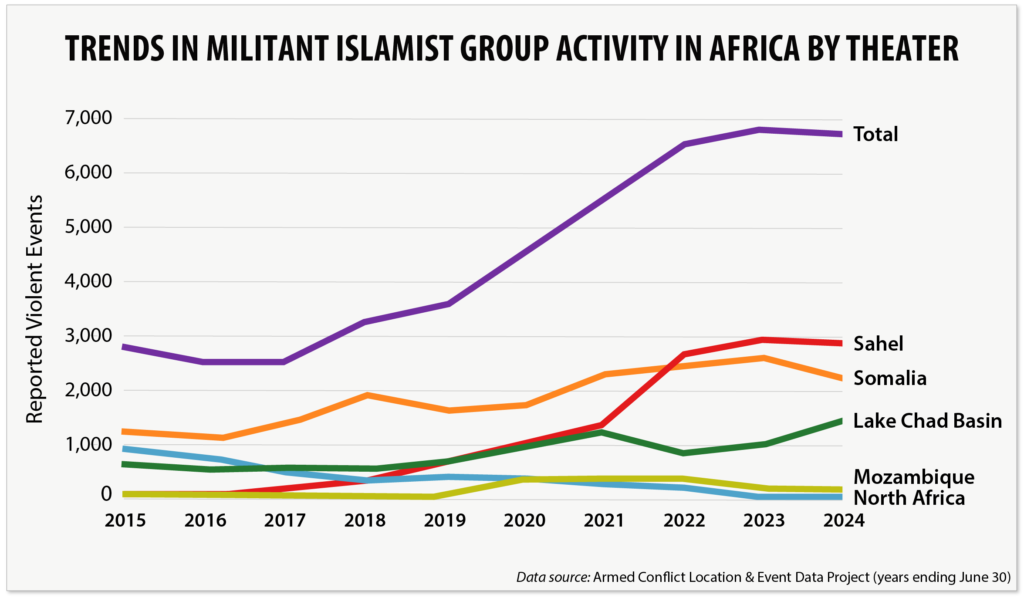
The threat of militant Islamist groups in Africa has steadily grown over the past decade. The growth is particularly in the Sahel region of Africa. The African Centre for Strategic Studies looks at annual violent events and has plotted that it has steadily grown over the past decade and are now almost three times what it was in 2014. The reported fatalities of 21,780 represent a 56% increase from 2021.
“As of January 2025. Burkina Faso is facing insurgencies from groups like the Islamic State in the Greater Sahara, ISGS, and Al-Qaeda initiatives. Cameroon is dealing with the Boko Haram insurgency. The Central African Republic is engaged with various conflicts with various armed groups trying for control,” Haupt noted.
“There’s the DRC experiencing multiple conflicts, including the M23 rebellion, and other militant activities in Ethiopia. The Tigray conflict, which began late in 2020, has drawn in neighbouring countries, further complicating the regional security landscape. Mali is facing insurgencies from groups like Al-Qaeda and the Islamic Maghreb. Mozambique is dealing with the Islamic State of Mozambique (ISM) insurgency in Cabo Delgado.”
“Niger is experiencing attacks from ISGS and other extremist groups. Nigeria is battling Boko Haram and its splinter group, the Islamic State West Africa Province. There’s Somalia confronting the Al-Shabaab insurgency. South Sudan is engaged in internal conflicts involving various factions. And since April 2023, Sudan has been engulfed in war following a breakdown between the Sudanese army and the Rapid Support Forces.”
These conflicts have had a major impact on displacement, with over 40 million people affected.
AID AS A WEAPON TO ENTICE GOVERNMENTS TO DO SOMETHING ABOUT CHILD SOLDIERS
While international legal bodies like the International Criminal Court have convicted leaders for using child soldiers, enforcement and prosecution remain weak. Regional frameworks such as those initiated by ECOWAS (Economic Community of West African States) and the African Union face challenges in implementation.
Organisations like UNICEF and Save the Children are active and have extensive programmes in rehabilitation and policy advocacy. Haupt noted that their efforts are hampered by limited access to conflict zones and funding constraints.
UNICEF has rehabilitated more than 7,000 children from the Central African Republic and South Sudan, but she points out that the funding is often insufficient to focus on gender-sensitive programmes. UNICEF has also started using geospatial data and satellite imagery to enhance data collection and intervention strategies.
Haupt’s recommendations to address the issue of child soldiers include:
– Involving children who have gone through DDR (Disarmament, Demobilization, and Reintegration) programs in policies to prevent further exploitation.
– Withholding aid to countries where the recruitment of children takes place could strengthen accountability.
– Increasing programmes and funding by non-governmental bodies.
She laments the fact that the world appears to have forgotten about child soldiers, despite reports in the news of a 13-year-old carrying rocket-propelled grenades supporting militia in Congo.
Haupt describes the plight of child soldiers as a dire situation and estimates it would take $1.37 billion by 2026 to meet the protection needs of children in armed conflicts.
For a more in-depth interview, listen to the podcast on The Security Podcast.


